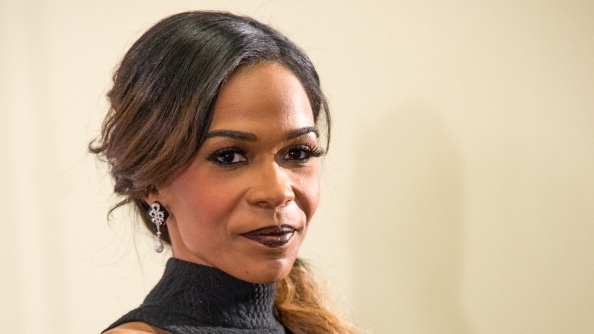With the month of May designated to observe mental health awareness, it's remiss to not have Black women at the forefront of the conversation. Studies have shown Black women are more likely to experience depression when compared to their white and male counterparts.
Grammy-winning musician Michelle Williams is known for an illustrious entertainment career, solo and as one-third of one of the greatest musical groups of all time, Destiny’s Child. Whether it was bringing dynamic storytelling to bring characters to life on Broadway or creating solo bodies of work that lived on the Billboard charts as well as in our hearts, Williams is no stranger at using her gifts to empower. Her advocacy around mental health is no different.
The Destiny’s Child alumna sat down with Blavity News to discuss the importance of Black women having candid conversations about mental health and her new book Checking In: How Getting Real about Depression Saved My Life — and Can Save Yours.
Oftentimes, mental health can be a taboo subject but Williams encourages Black people and Black women, especially, to normalize these kinds of conversations.
“We can call each other or have conversations and say, ‘Girl, my knee has been hurting me or I've been having these headaches,’ but we are never able to say, ‘You know what, I haven't been okay for the past week, or month, or so. You know, I'm having a challenge or I'm grieving this loss or I'm grieving this transition of a relationship,’" Williams said. “Let’s normalize it and let people know it's actually strength. You're displaying strength, not weakness if you're having a rough time emotionally or mentally.”
For those who acknowledge their challenges with mental health but also struggle with seeking help, Williams recommends confiding in those you trust.
“Go to the person in which you trust their heart,” Williams said. “If you know somebody's messy or they're known to talk about people in the past, they might not be the person you want to go to. Go to somebody just to get it initially off your chest, a safe place."
She also encouraged using digital resources at one's disposal like Psychology Today's Instagram page.
Williams isn’t the only Black woman in the limelight to share her truth in dealing with mental health. Duchess of Sussex Meghan Markle sat down for a heart-wrenching interview with Oprah earlier this year, revealing she contemplated suicide.
“I was like, ‘you go, girl,’ I mean, she had to do it, and I'm sure she didn't know what the reaction was going to be but it's like, ‘I said what I said, this is my truth,’" Williams said. “I was angry because there were so many people that said she was lying and she doesn’t come across as a liar to me. She knows how she was feeling. Don't tell someone ‘You have access to everything. You're in the royal family.’ That doesn’t mean anything.”
On Tuesday, the Illinois native took her insight to a virtual audience during a conversation with the investment banking and financial services company, UBS, and their athletes & entertainers strategic client segment about owning both your finances and mental well-being. She said she was hopeful that the conversation would inspire people to admit they may need assistance in processing pain or trauma.
“I wanted to have this conversation with people that feel like, you have to walk in there put together and I hope I create a safe place for people, Williams said. “I just want some people to say ‘You know what, I do need help and assistance in processing some pain or some trauma.’”
Checking in can mean different things to different people.
For Williams, it means prioritizing mental health by checking in with one’s self, God and those around you.
“That's what I'm checking in with on a daily and I have been for almost three years and it has made such a difference,” Williams said. “I just wanted to give people something practical to do. It's okay to be aware of how you're feeling throughout the day. Before you go to bed at night, when you wake up in the morning, how are you doing? How are you feeling? Check that moment of just being still and checking in with God. Just do that daily and I really think you'll feel a difference in your emotions.”
